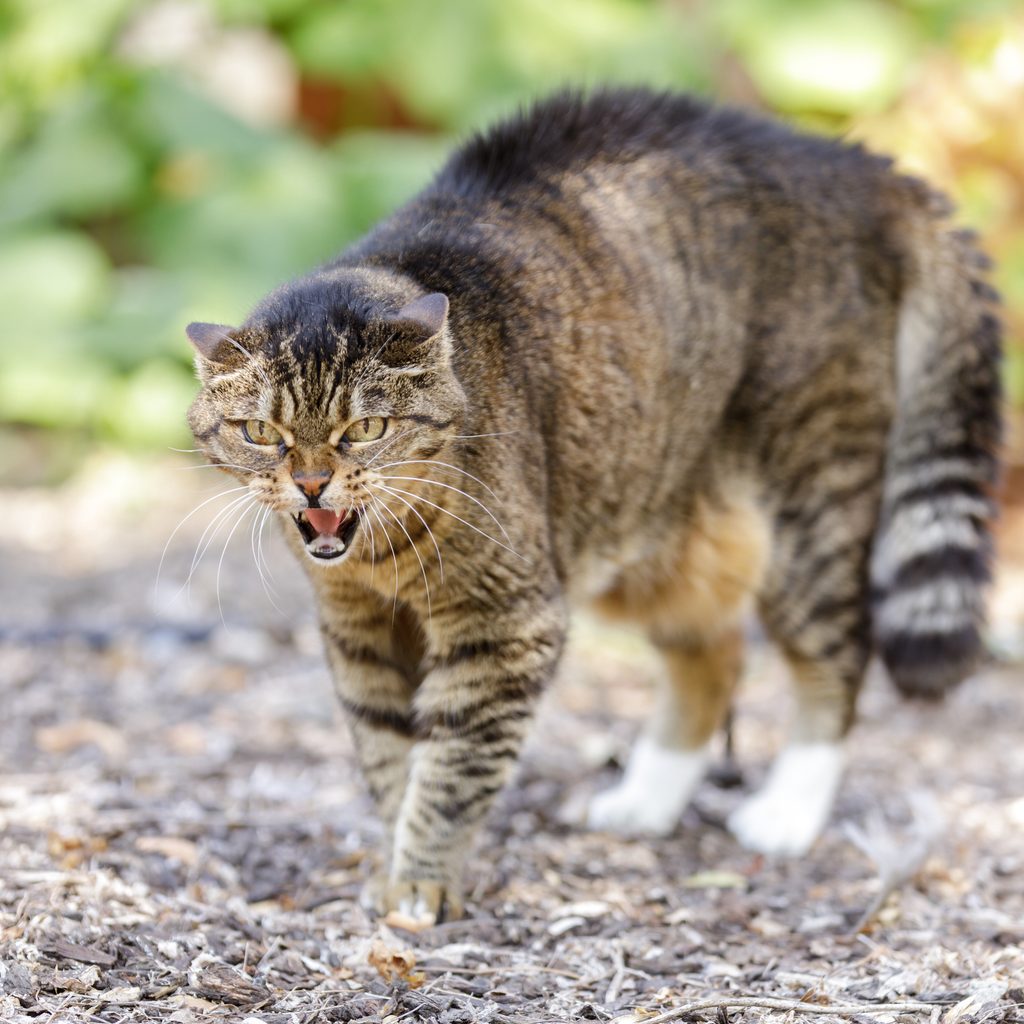
Cat owners and non-owners alike have seen the famous Halloween symbol of a black cat with their back arched and hairs raised. The accompanying yowl can be heard in just about every Halloween movie ever made, but it’s entirely different when a cat arches their back in real life. In books and movies, though, cats only seem to arch their backs out of aggression or fear. It’s almost never a good thing!
However, a cat’s arched back can mean many different things. True, it can be a fear reaction or an attempt at threatening another cat, but it can also be a reaction to completely normal, nonchalant things. These are the most common reasons why a cat might arch their back.
A cat’s arched back can be a sign of aggression or defensiveness
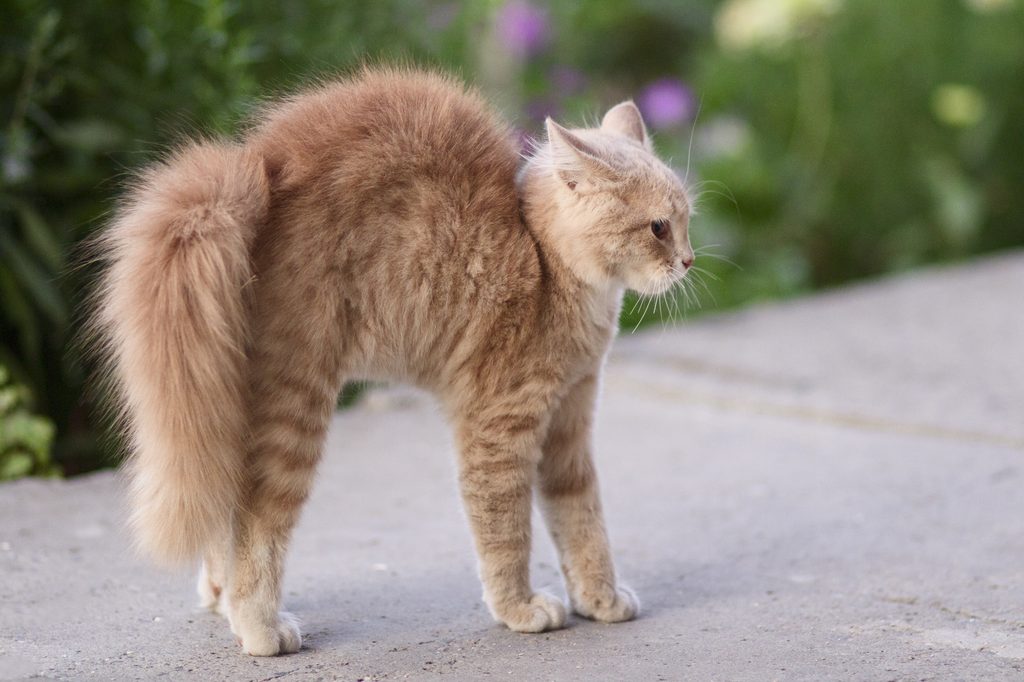
Although this isn’t always the case, cats sometimes do arch their backs out of fear or intimidation. This may be a knee-jerk reaction to a shocking surprise (and may be accompanied by a yowl, hiss, or growl), or it could be a way that a feline intentionally scares off another cat or animal.
When a cat arches their back, the hairs on their body also stand up. These postural changes help them appear bigger and more intimidating, which can be helpful in the face of a challenge or threat. It’s no wonder why this symbol is so commonly associated with Halloween.
Many cats arch their backs while stretching
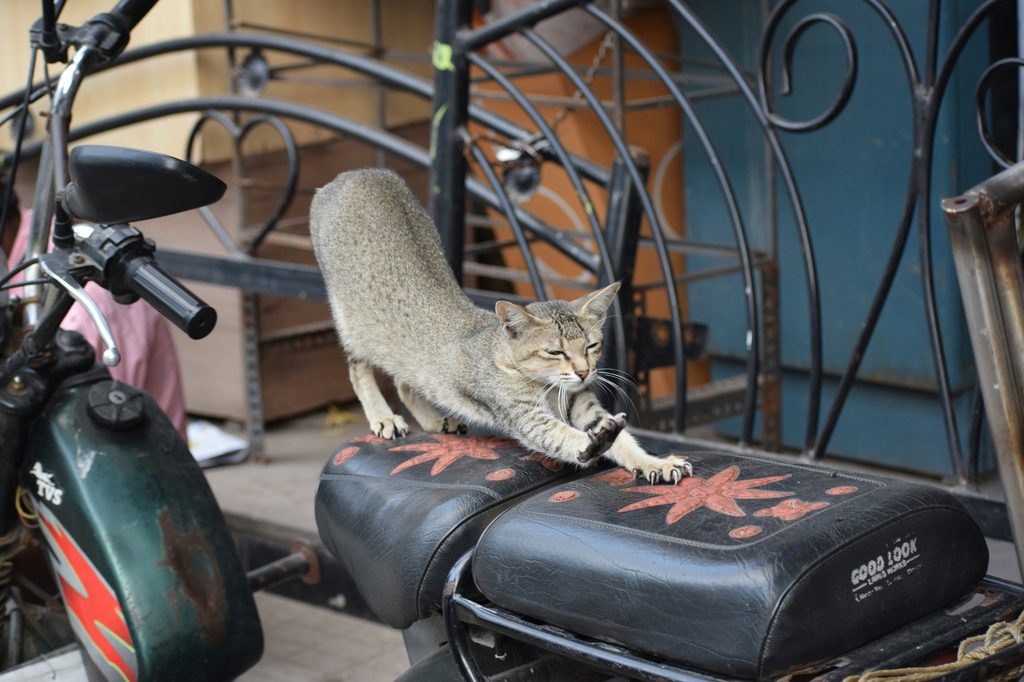
Many times, a cat-arched back is nothing more than a really good stretch. Whether they’re waking up after a long nap in the sunshine or are limbering up before playtime, you might notice an arched back while they’re stretching their spine. They won’t stay in this position for long, and they’ll likely move into and out of it more slowly than when in a defensive situation.
When your cat is stretching, you may also notice them yawning, sighing, or closing their eyes. Stretches are fairly obvious. If your cat is licking itself while arching its back, the odds are that it is just supporting itself while grooming in a hard-to-reach area.
Cats may arch their backs during petting sessions
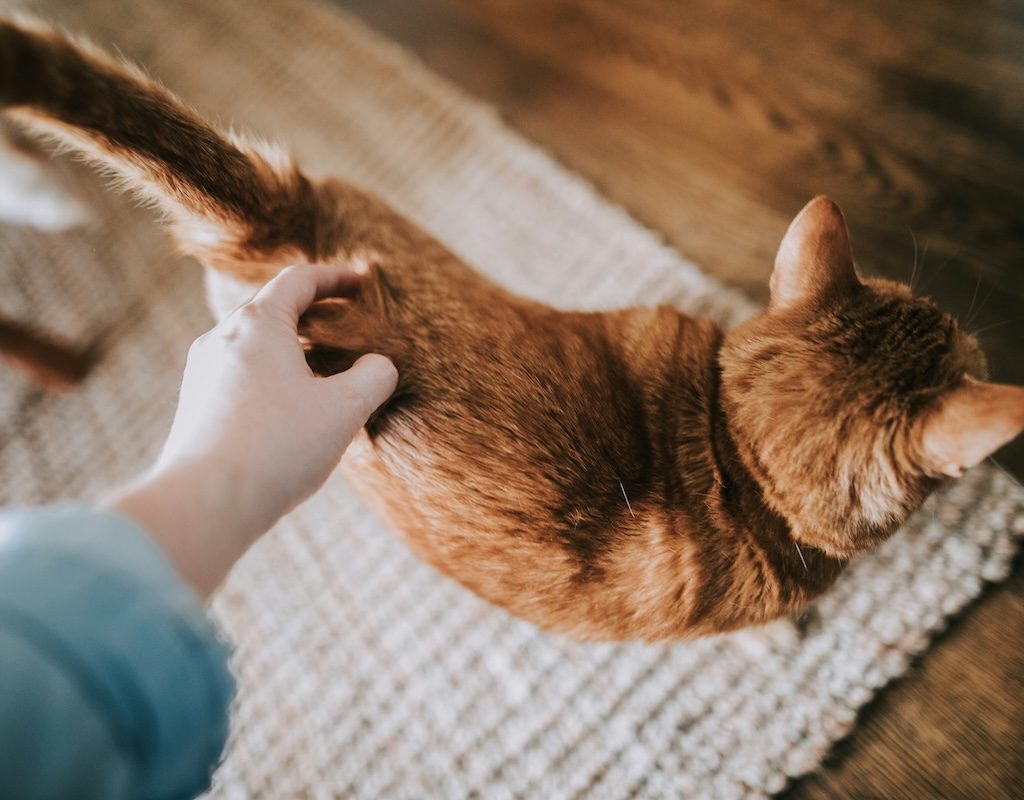
Other times, you may see your feline friend arch their back into your hands while you’re petting them. Take it as a compliment. This means that they’re thoroughly enjoying the scratching or massage, and they’re leaning in to get you to apply a little more pressure. If your pet cat is doing this, you may have found a sweet spot. Keep the scratches coming!
A cat-arched back can be a sign of play
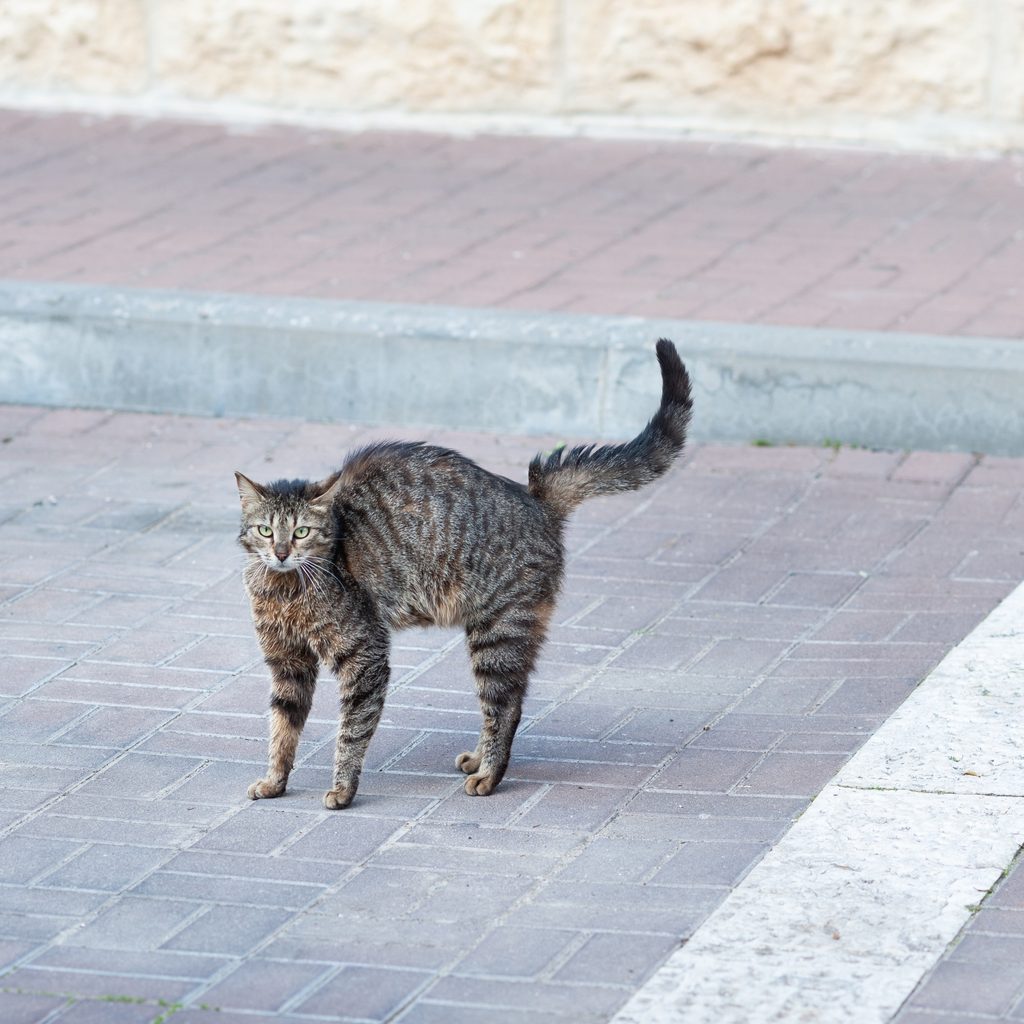
Occasionally, a cat arches their back while playing, even if it may look like they’re scared or surprised at first glance. The fast-paced movement of play can easily be mistaken for a negative reaction, but it’s totally normal to see your feline friend arching their back before pouncing on a toy. They may even jump sideways with their bodies in a similar position as a fear-based arch, but their fur won’t be standing up like it would be if they were feeling aggressive.
It can look startling when a cat approaches you and suddenly arches their back, but this can be an odd way that cats ask their owners to play. This is why paying attention to other cat body language signals is so important; it can help you distinguish between a truly fearful reaction and a meaningless change in posture.
What to do when your cat arches their back
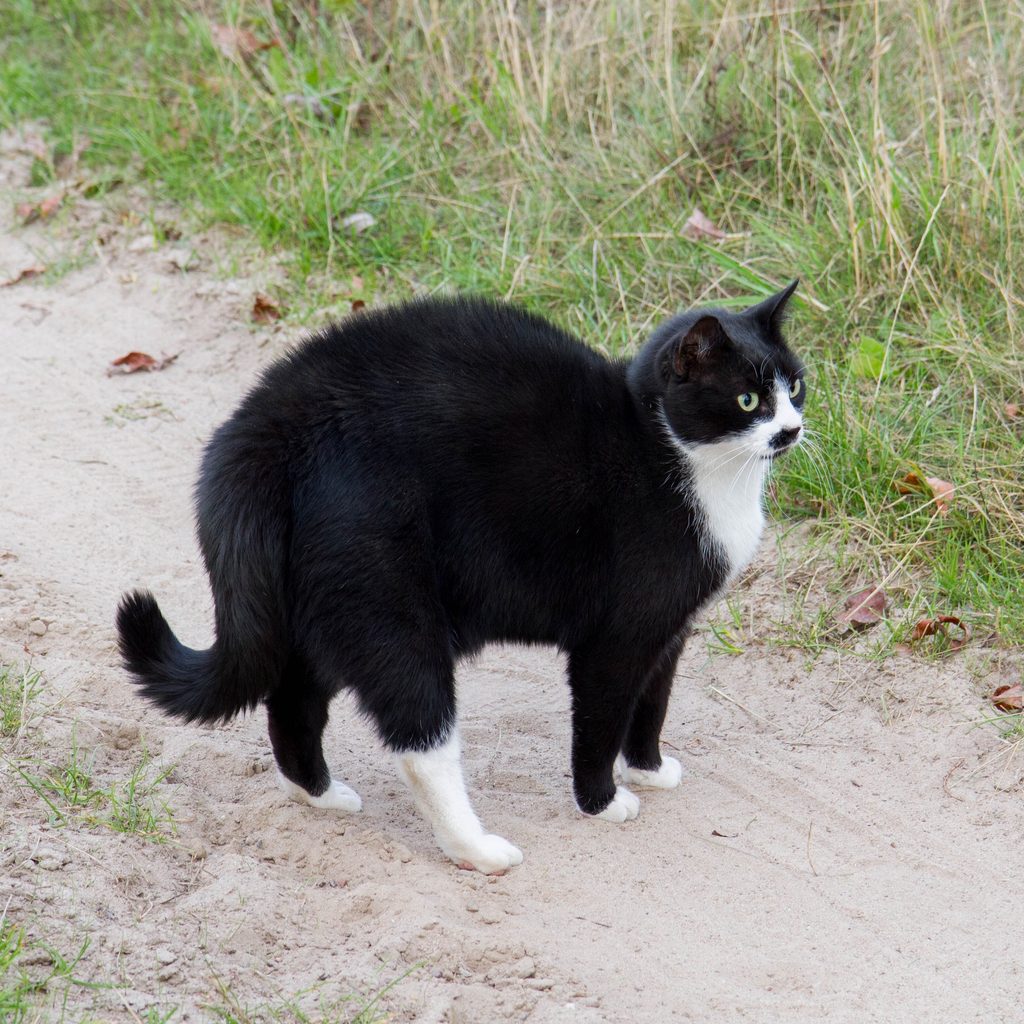
Most of the time, you don’t need to do anything at all. If your kitty is arching their back out of surprise, they’ll quickly return to a more relaxed state. If they’re feeling afraid, however, you can also look for feline body language signs, such as “raised fur, a bushy tail, flattened ears, pulled-back whiskers, and dilated pupils.” As the cat experts at Sheba explain, a swishing tail can also be a sign of an angry kitty.
To give your cat a helping paw, try looking for what they’re reacting to. You might be able to remove the source of their fear. If they’re reacting to another animal, however, you’ll have to think more carefully about how to proceed without escalating the situation. When your cat is arching their back, though, make sure not to approach them or pick them up, as they can take this as a sign of an attack.
Instead, pretend your reactive feline is an angsty teenager and simply let them cool off. You don’t need to do anything at all if your buddy is stretching, grooming, or trying to play, but if your cat is arching their back, it’s normal to want to figure out why.
Now that you know what you do about cat-arched backs, you can navigate reactive situations with ease and confidence. You’ll know right off the bat when it’s time to give your kitty some space, and you’ll understand when it’s time to play. It’s like reading your cat’s mind.




